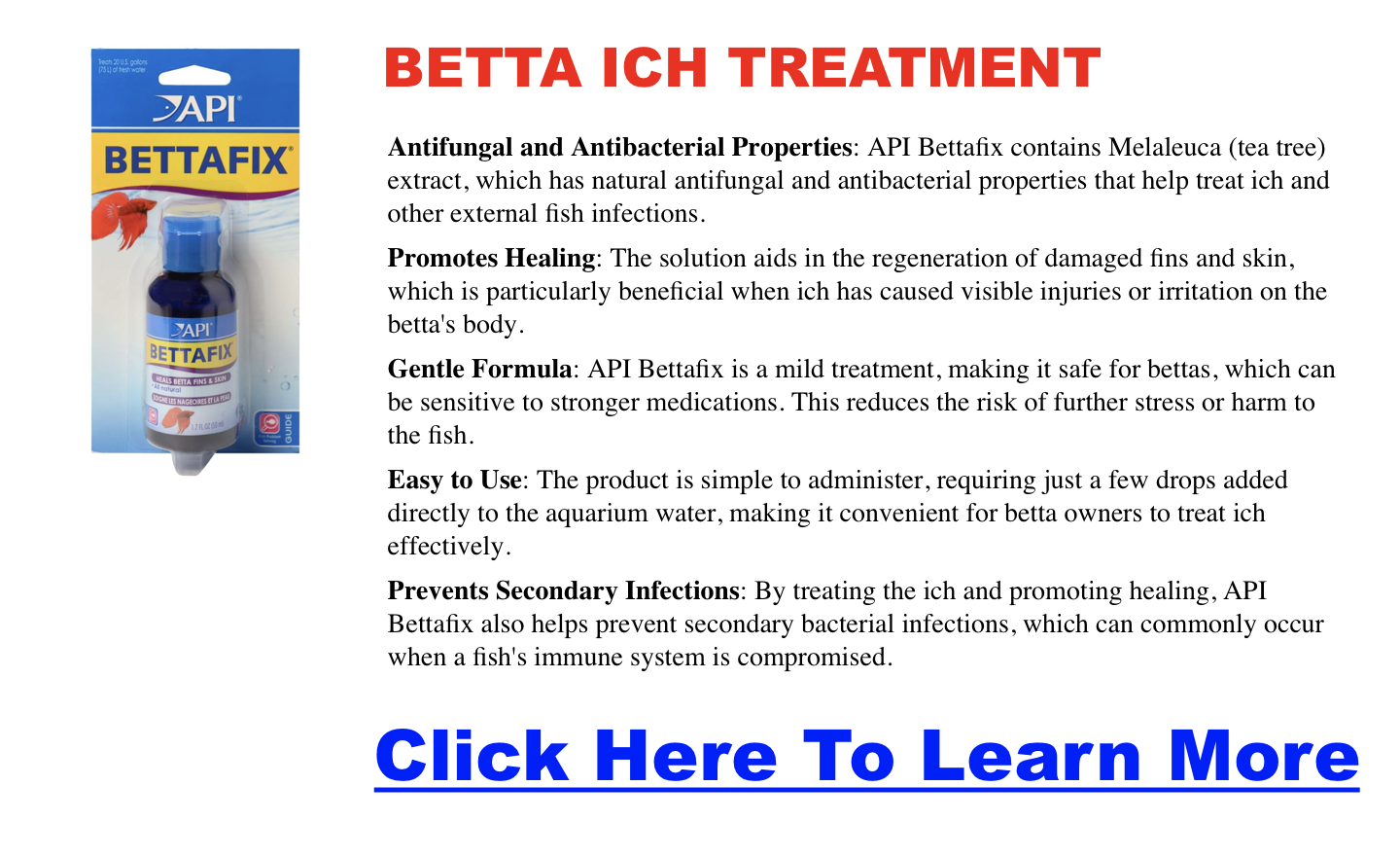Ich On Betta: What It Is & How To Treat It

Betta fish are cherished for their vivid colors and unique personalities, but like all fish, they are susceptible to diseases. One of the most common and serious conditions bettas face is Ich, or white spot disease. Ich is caused by the parasite Ichthyophthirius multifiliis, and it can be fatal if not promptly addressed. Understanding Ich’s life cycle, symptoms, and treatment options is going to be key to keeping your betta healthy.
What Is Ich and How Does Ich Spread on a Betta?
Ich, also known as ick or white spot disease, manifests as small, salt-like white spots on the body, fins, and gills of the fish. This parasite has a three-stage life cycle:
- Trophont Stage: The parasite attaches to the fish and feeds, appearing as white specks.
- Tomont Stage: The parasite detaches from the fish, settling in the substrate to reproduce rapidly.
- Theront Stage: The newly hatched parasites swim freely in search of a host, making this phase the most responsive to treatment.
Early Signs of Ich
If your betta develops ich, you’ll have a few visual cues to watch:
Visual Symptoms:
- Small, grain-like white spots on the body and fins.
- White patches may form on the head or gills.
- Potential color loss or ragged fins.
Behavioral Changes:
- Rubbing against tank decorations (flashing) as a response to irritation.
- Lethargy, increased hiding, and reduced activity.
- Labored breathing and clamped fins.
- Refusal to eat, signaling distress.
Outbreaks are often triggered by stressors such as poor water quality, sudden temperature changes, and the introduction of infected fish or plants without quarantine.
Treating Ich Effectively
If a betta has ich, it’s best to immediately move it to a hospital tank to prevent it from spreading to other fish in the tank. Then you’ll want to do the following to the water:
Initial Steps:
- Move the fish to a hospital tank to prevent the spread.
- Gradually increase the temperature to 81-86°F (27-30°C) using a reliable thermometer. This accelerates the parasite’s life cycle.
Medication Options:
Click here for my favorite ich treatment
- Use Ich-specific treatments containing malachite green or methylene blue. Products like Kordon Rid Ich Plus or API Super Ick Cure are popular choices.
- Always remove carbon filters during treatment, as they can absorb the medication.
Alternative Methods:
- Aquarium salt can be used to disrupt the osmotic balance of the parasite. However, it should be used cautiously as not all fish tolerate salt well.
- Maintain frequent water changes, around 25-50% daily, to remove free-swimming parasites and keep the water clean.
Treatment Duration:
- Continue the treatment for at least 7-10 days (or follow the medication instructions if using one). Even after the visible signs of Ich disappear, you’ll want to wait a little bit before transferring them back into their old tank. This ensures all parasites are eliminated, and that you won’t reintroduce it to the main tank.
Preventing Future Outbreaks of Ich
Ich can develop from a multitude of reasons such as stress, water quality, and when adding new fish to the tank. Here are some tips you can keep in mind which should help reduce the chances of ich developing on your bettas.
Quarantine New Arrivals:
- Always isolate new fish or plants for a minimum of two weeks to monitor for potential diseases before introducing them to your tank.
Maintain Excellent Water Quality:
- Regular water changes and monitoring of water parameters can help keep stress levels low and immune systems strong.
Reduce Stress Factors:
- Ensure the tank is spacious enough and free of aggressive tank mates.
- Stabilize water temperature and avoid sudden fluctuations.
Consider Preventative Measures:
- Adding a small amount of aquarium salt at a low dose can serve as a deterrent to parasites without harming your fish.
Helpful Tips for Effective Treatment
- Use a hospital tank for medication if you have sensitive invertebrates or multiple fish in the main tank.
- Provide a balanced diet to strengthen your betta’s immune system.
- Be patient and consistent with the treatment plan, as Ich can be persistent.
Final Thoughts
Prompt recognition and treatment of Ich are essential for the health of your betta fish. Early action, combined with comprehensive prevention strategies, can protect your fish from future outbreaks. Prioritize water quality, reduce stress, and monitor any new tank additions to maintain a thriving aquarium.


